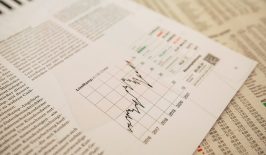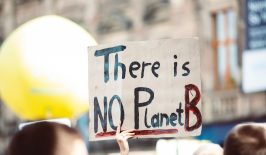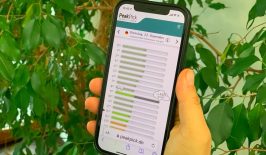Freely adapted from the motto “Think globally, act locally” a group of Indian and German researchers, academics and experts founded the ‘SHP’ which is coordinated by the Humboldt University Berlin and funded by the German Federal Ministry of Education and Research.
Together with a number of project partners from both countries, they are working on a number of solutions to different problems caused by climate change, e.g. pollution, health problems and malnutrition in the emerging megacity of “Greater Hyderabad” – which is expected to reach 10.5 million inhabitants by 2015. “Getting the institutions right” is a key aspect in solving the problems of sustainable resource-use and achieving sustainable development of the Hyderabad region.
Severe floods in 2002, strong heat waves in 2003 and a total of three drought years between 2000 and 2007 have caused serious damage to human life, property and economic development. Thus the impact of climate change in everyday life has become a central issue that the project intends to both explore and provide solutions to. In this context the main questions are: how could we use energy more efficiently? And could the per capita greenhouse gas emissions be reduced? Modernization and urbanization processes have led to a growth of commercial energy and indirect energy uses e.g. energy embodied in products and services indicating Hyderabad’s shift towards a modern consumer society. This requires the commitment of numerous actors to subscribe to institutions of sustainability, which the project encourages by organizing discourses for changing the rules-in-use.
To adapt strategies to and mitigate against climate change, and the high emission of greenhouse gas, the SHP aims to change institutions, governance structures, lifestyles and consumption patterns – for example through Capacity Building and the implementation of Pilot Projects (PP). These challenging objectives are tackled through several innovations for the megacity and its region. The Project’s main and overall objectives are the development of a Sustainable Development Framework (SDF). These focus on mitigation and adaptation strategies for climate change and energy provision, as well as efficiency concepts. Based on this framework, a concept of a strategy for a Perspective Action Plan (PAP) is focusing on the resolution of these problems, and the implementation of selected Pilot Projects at the community level. Find more information about the Pilot Projects here.
To achieve these goals, the projects have set up specific research objectives which integrate different concepts of institutional, economic, political and technological changes e.g. the development of specific knowledge about climate change, provide mitigation and adjustment opportunities, improve energy efficiency in the megacity as well as the development of communication strategies and co-operations between policy-makers and stakeholders. Read more about the specific objectives here.

Innovations and results of the research are tested through the implementation of Pilot-Projects e.g. the Sustainable Street Food Plan, which was developed over more than three years. The PP’s aims to improve food safety standards, to secure livelihoods of petty trade vendors and to contribute to socially inclusive and low-emission urban development. In the framework of the PP several micro-projects are carried out. One example is a street food festival, which is conducted every January as part of the National Vendors’ Day initiative. It communicates the importance of the local street food sector in providing safe, healthy, affordable and culturally embedded food items. During the festival, training seminars for vendors and cooking classes for visitors will be conducted, and the need to involve vendors in urban planning processes will be highlighted.
Through all the pilot projects, capacity building activities, workshops and discourses, the Sustainable Hyderabad Project does not only show that interdisciplinary Indian-German cooperation works, but that it contributes to a better life for the city’s inhabitants, whilst also being role model for sustainable development activities in other cities and regions.








